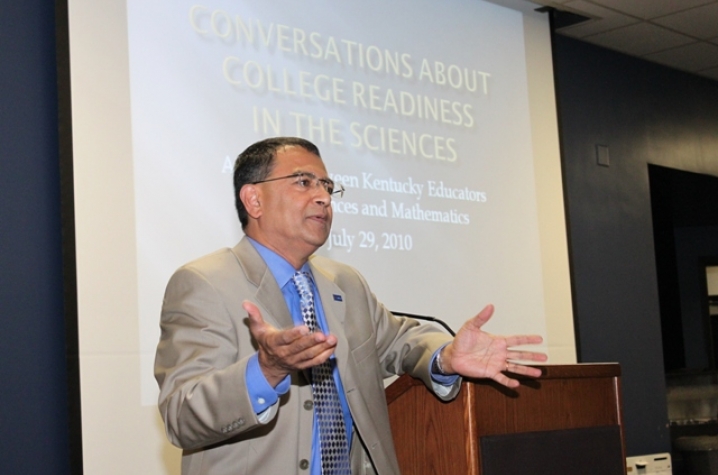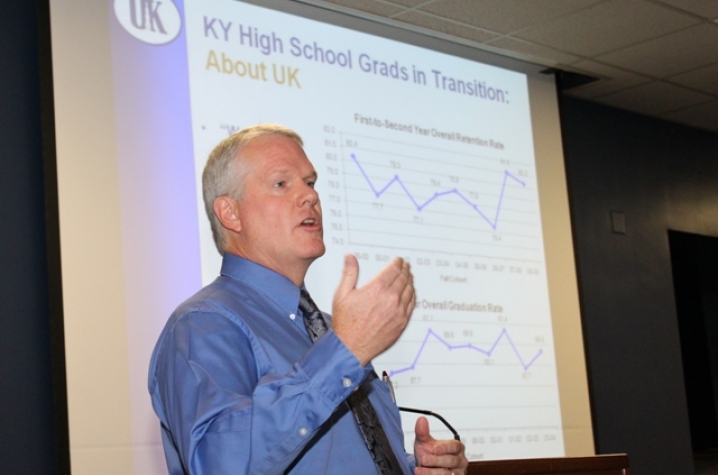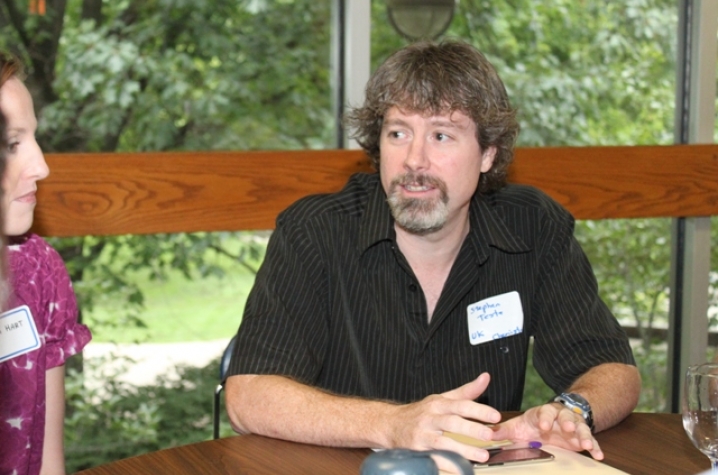Educators Work to Improve Student Science Readiness
LEXINGTON, Ky. (Aug. 6, 2010) − More than 50 science and math educators from central Kentucky high schools and the University of Kentucky met recently to discuss science readiness for incoming UK freshmen. Many high school graduates struggle with first-year science classes at UK. The educators compared course plans, teaching methods and expectations in an effort to change that.
"I know the problem can seem too big to solve," UK Provost Kumble Subbaswamy told the group, citing class drop-out statistics that can reach 40 percent in some first-year chemistry courses. "But a dean of education once said to me that, taken as a whole, the problem may seem impossible - but if we take our piece and focus on improving that piece, that is what we can contribute."
The need to raise student success in science courses is not limited to UK. Kentucky trails other states in science and math scores and student preparation.
"You could probably build a ladder and reach the top of the ceiling with the reports that tell us we are lagging behind in the sciences," said Mike Mullen, UK's associate provost for Undergraduate Education. "We must improve our performance in the sciences."
UK is committed to this improvement through enhanced recruitment and retention efforts for science, technology, engineering and math (STEM) majors. Students in STEM disciplines have higher retention and graduation rates at UK. After graduation, they join an in-demand workforce that can help move Kentucky forward in an innovation-driven economy. This is why support for STEM students is central to UK's strategic plan and goal of becoming a Top 20 research university.
Educators, including representatives from the Kentucky Department of Education and Fayette County Public Schools, discussed changes to math and science standards at both the state and federal levels. Teachers and faculty then broke into groups to discuss student preparation in biology, chemistry, physics and interdisciplinary sciences. Many educators brought their textbooks to compare expectations for students in high school and in their first year at UK. Stephen Testa, associate professor in UK's Department of Chemistry, led a group of educators focusing on that discipline.
"There are studies and studies that show the biggest predictor of student success in chemistry is their preparation in math," Testa told the group. "So I'm here to tell you to work on your students' math skills - and what we need is simple algebra, not advanced trigonometry."
Professor Richard Sweigard of the College of Engineering echoed Testa's advice about math preparation to high school educators in the physics group. He said that while high school students often come to the college with little or no high school physics training, they must have a good background in math to succeed.
High school teachers took away a better understanding of how to prepare their students for success in UK science courses. "We definitely want to know what you're expecting, and what you need," Bourbon County High School physics teacher Miriam Lightfoot told the UK faculty.
The group of educators plans to meet again in the future, and hopes to bring in students and UK science lab coordinators to offer input. Ultimately, they want the discussions to lead to a smoother shift for students leaving Kentucky high schools and entering UK's first-year science courses.
"For students who say, 'I'm going to get a University of Kentucky bachelor's degree,' we want to make sure they are successful in that transition," Mullen said.







